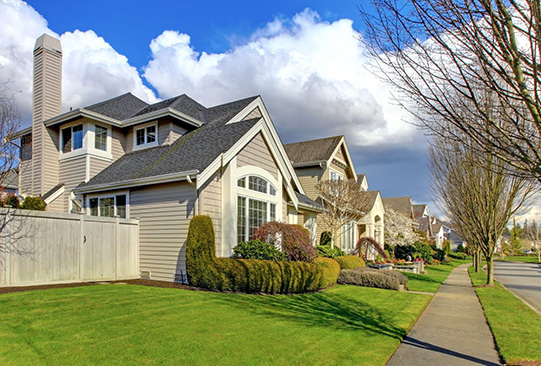 Securing the best conventional mortgage rate possible can pose a challenge for even veteran property buyers.
Securing the best conventional mortgage rate possible can pose a challenge for even veteran property buyers.
Your mortgage rate will be determined by a variety of factors that pertain to your unique financial portfolio as well as economic forces. While no one has full control over all of the things that influence the process, understanding the manageable aspects can improve your negotiation position when securing a conventional mortgage.
Consider these four things that impact how conventional mortgage rates are determined.
1: Credit Is King
A borrower’s credit score has a tremendous impact on the final mortgage rate. The general rule is that the higher the score, the lower the rate. The opposite generally holds true as well.
Lenders usually require a minimum credit score of at least 620. Some will dip as low as 580. If yours falls lower, qualifying for a conventional loan may not be an option. But the good news about credit scores is that this is an element you have control over.
A credit report details your repayment history, previous loans, credit card and financial bandwidth, so to speak. Before mortgage shopping, get a copy of your credit report, clean up any blemishes and amp it up as high as possible.
2: Economic Growth Matters
The average home buyer has zero control over the economic forces that impact mortgage rates. But you do have choice about when to buy.
It’s no secret that the country is in the midst of tremendous GDP growth, historically low unemployment, improved consumer confidence and rising wages. This may seem like a good time to buy. Not necessarily when it comes to conventional mortgage rates.
Prosperity tends to create an uptick in consumers vying for home loans. That demand seems like a good thing. But the Fed often responds to high levels of consumer confidence by raising rates across the board. The theory behind this unfortunate environment stems from the idea lenders have limited resources.
It may seem counterintuitive, but weak economies often enjoy lower rates. For practical buying purposes, the U.S. economy looks like a juggernaut right now. You may want to buy sooner rather than later. Rates could go up again.
3: Price And Down Payment
Another set of facts that you have control over are the down payment amount and price of the home.
Conventional mortgages require a minimum down payment of 20 percent or higher. Like credit scores, the higher the down payment to better positioned you will be to secure the lowest possible rate. The basic concept trails back to the level of risk the lender takes by writing the loan.
For example, borrower defaults often force banks to take losses upwards of 30-60 percent of the loan. That 20 percent shows that you have real skin in the game and are less likely to stop paying the monthly premiums. Big down payments often correlate to lower mortgage rates.
Although 20 percent remains the industry standard, borrowers can secure a loan with less down. If you qualify for a conventional loan with less than 20 percent down, expect a less than desirable rate and the additional cost of private mortgage insurance. It’s kind of a double whammy.
4: Loan Types Differ
There are several variables in the loan-writing process that directly impact rates.
Most loans have terms of 15-30 years and lenders are more apt to offer lower rates on shorter term mortgages. Fixed- or adjustable-rate types are also profoundly different. Adjustable mortgages tend to enjoy lower rates in weak economies. But when the country ramps up, so does your interest rate and monthly premium.
Fixed-rate conventional mortgages are static throughout the life of the loan. The rate may be slightly higher at the closing. However, you won’t be betting against the economy.
Lastly, borrowers have the ability to buy points. This practice allows borrowers to pay more upfront costs and enjoy lower mortgage rates for the life of the loan. It’s one method some people use to overcome less-than-perfect credit scores.
Contact your trusted real estate professional to discuss the best plan for finding and securing the home of your dreams.
 For first-time home buyers, closing costs are a major hurdle for home ownership. Coming up with a down payment and several thousand dollars for closing costs can be hard without home equity to tap.
For first-time home buyers, closing costs are a major hurdle for home ownership. Coming up with a down payment and several thousand dollars for closing costs can be hard without home equity to tap. Like credit cards or car loans, some mortgages allow borrowers to have co-signers on the loan with them, enhancing their application. However, a co-signer on a mortgage loan doesn’t have the same impact that it might on another loan. Furthermore, it poses serious drawbacks for the co-signer.
Like credit cards or car loans, some mortgages allow borrowers to have co-signers on the loan with them, enhancing their application. However, a co-signer on a mortgage loan doesn’t have the same impact that it might on another loan. Furthermore, it poses serious drawbacks for the co-signer. U.S. military veterans have opportunities to enjoy some richly-deserved benefits in other aspects of their lives, including some special options for financing their homes. VA loans may give active military personnel, retired veterans, and sometimes surviving family members of veterans the ability to purchase homes that might not prove available to them through more conventional mortgage loans.
U.S. military veterans have opportunities to enjoy some richly-deserved benefits in other aspects of their lives, including some special options for financing their homes. VA loans may give active military personnel, retired veterans, and sometimes surviving family members of veterans the ability to purchase homes that might not prove available to them through more conventional mortgage loans.